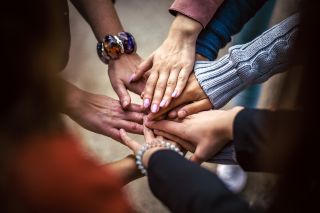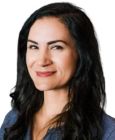Relationships
The Power of Selfless Community in a Crisis
In a self-centred world, communities of other-focused people are our hope.
Updated October 15, 2023 Reviewed by Kaja Perina
Key points
- The highest expression of community is when members put the well-being of others in need, ahead of their own.
- In today's challenging world, we must put aside differences and work together for a better present and future.
- In a resilient community, people are educated to be able to help in prevailing crises.
- Given the current opioid crisis, it's essential for community members to know how to respond to an overdose.

Last night, I was looking forward to a restful evening. Last Tuesday was World Mental Health Day, and I’d given several multi-national virtual presentations over the week. The final one wrapped at midnight, reaching people in far-flung time zones.
While I was resting, my dog whined, asking to go out. Going out the front door, we came upon a disheveled man who was lying on the ground, writhing. A small crowd had gathered, a few feet away.
I lifted my dog into my arms, to prevent her from adding to the chaos, and asked if anyone had called 911.
“He’s calling right now,” said a young man, pointing at his friend.
Next, a woman approached and checked his pulse and whether he was breathing, which he was.
“Are you in healthcare?” I asked. “No,” she said, “I’m a first aid attendant.”
“Does anyone know what happened?” I asked the crowd.
“Heroin,” another young man said. It wasn’t clear whether he knew that for sure.
I turned to the first aid attendant and discussed running to get a Narcan kit from a nearby pharmacy (naloxone, the life-saving antidote in opiate overdose).
At that moment, a young women burst into the scene. Her manner suggested that she may have been using drugs, herself. She shouted at the man, pushing on his sternum and shaking his head, trying to rouse him. She didn’t seem to know him, but she seemed familiar with the situation.
Next, she gave him “mouth-to-mouth” rescue breathing, with no apparent concern for her own safety.
“We’ll go get some Narcan!” I told her.
“I’ve got a kit in my pack!” she shouted. She took it out, fumbled with the needles and vials, and then paused, unsure whether to give it to him. “He’s still breathing,” she said.
I wasn’t much use. I knew that Narcan was used for overdose, and we’d always had it at the clinic, but I’d never administered it. I wasn’t sure what the protocol was, or what risk there might be to someone.
Another stranger emerged from the growing crowd. He got down on the ground, taking over. After assessing the situation, he tugged the man’s pants down, grabbed the syringe of Narcan and injected it into the man’s left thigh.
This man, too, gave no thought to his own safety. He didn’t use gloves. His “patient” could have easily lashed out with the pain of the needle, making this Good Samaritan vulnerable to a high risk needlestick injury.
The man gave no sign of feeling the needle. His breathing slowed, and he began to make ominous gurgling sounds. The man who’d administered the Narcan reached up and expertly checked his neck.
“No pulse!” he shouted. The man was now completely still, and very pale.
The young man who was on the phone with 911 instructed that someone should give mouth-to-mouth and start chest compressions. A CPR mask emerged from somewhere, and another young man kneeled next to the man on the ground.
As CPR was administered, the Samaritan (who seemed completely unfazed) gave a second injection of Narcan.
While the man was receiving rescue breathing, he suddenly moved his right arm, and his facial muscles quickly followed. He literally came back to life in front of us.
The Samaritan gently helped him get his pants on, and he and another man carried him over to be propped against a wall.
The paramedics arrived shortly after. If this team of strangers hadn’t intervened, he would surely have died.
This happened in a city that’s known as a hard place to make new friends. People are polite and kind, but reserved, and keep to themselves. And this was a notably ethnically and racially diverse group of heroes and heroines.
It was one of the most moving scenes I’ve ever witnessed.
I have a little habit, when I walk around my neighborhood, of saying prayers for the area. I pray that it would be a place where people thrive. I pray for the increasing numbers of people visibly impacted by our opioid crisis.
I understood a “thriving” neighborhood to be a feel-good place where people could happily co-exist, enjoying the positive aspects of community and life.
Last night, I witnessed community in the highest sense of the word. It’s not just that people know each other and are kind, but that people are willing to risk and sacrifice to help another. In this case for a neighbor in need, who in other contexts could easily have been overlooked.
Dr. Michael Unger, Ph.D., one of the world’s leading resilience experts, emphasizes in his book Change Your World: The Science of Resilience and the True Path to Success, that we are only as resilient as the resources around us.
Resources indeed saved this man. In this region, pharmacies and at-risk individuals are freely given Narcan kits. And clearly, some members of the population have been educated in how to respond to an overdose. It was also clear that there’s a sense of responsibility in my community, to help a neighbor in trouble, however different they might be from you.
In the midst of this amazing scene, I felt woefully inadequate. I had ER training early on, but I’m not a first responder. I’m used to a highly controlled hospital environment, with a team of experts and everything one could possibly need.
I went home and read everything I could about best practices in an overdose situation. The young woman had done the right thing, in administering rescue breathing as a first step. I’m planning to get my own Narcan kit and a CPR mask, to have on hand next time.
The world may have positively recognized Mental Health Day last week, but it was also a very dark week for the planet. Sometimes, reading the news, it’s tempting to lose all hope. Last night’s scene reminded me that humans can be extraordinary in their love, their selflessness, and their care for others.
Together, may we build communities that bring out the very best in us. Especially when people need our help.
Copyright 2023 Dr. Susan Biali Haas, M.D.




